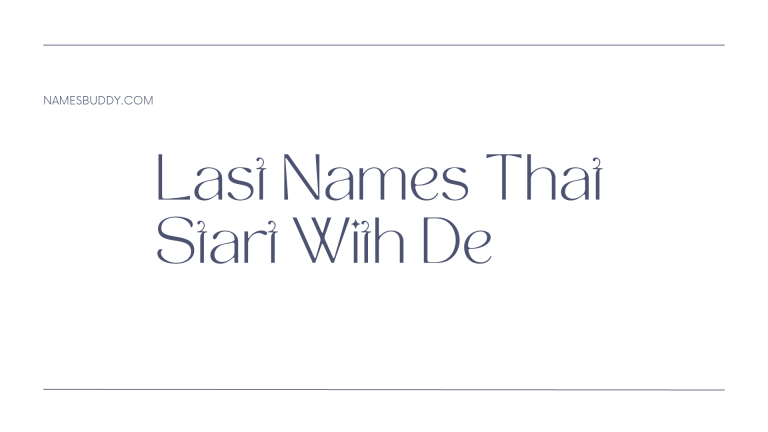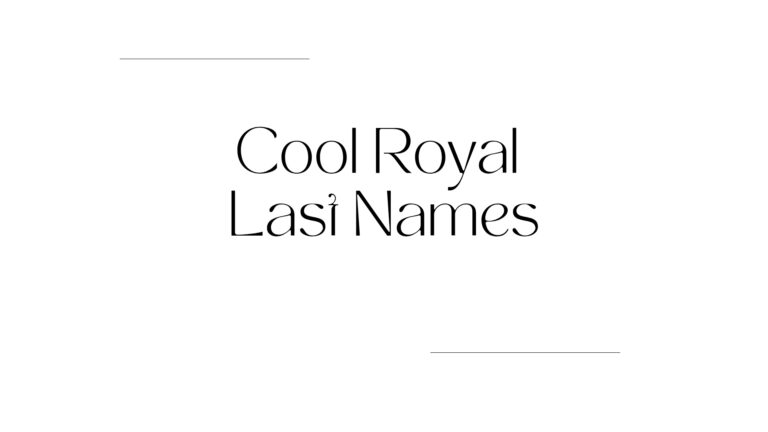100 Popular Chinese Last Names
Chinese surnames have a deep link to the nation’s past, culture, and family roots. Many of these names go back thousands of years often tied to old clans, land features, or noble ranks.
With fewer common last names than other cultures, like Li, Wang, and Zhang, each has a rich historical and cultural meaning.
To learn about these names gives us an interesting look into the beliefs, customs, and family structures of one of the world’s oldest cultures.
Come with us to explore the meanings, roots, and timeless tales behind Chinese surnames.
Chinse Last Names
Li (李) – Means “plum”; one of the most common Chinese surnames.
Wang (王) – Means “king” or “monarch.”
Zhang (张) – Means “archer” or “to stretch.”
Liu (刘) – Means “willow tree” or “to kill/destroy.”
Chen (陈) – Means “to exhibit” or “ancient.”
Yang (杨) – Means “poplar tree.”
Zhao (赵) – From the ancient state of Zhao; means “to beckon.”
Huang (黄) – Means “yellow” or “bright.”
Zhou (周) – Means “circumference” or “cycle”; also refers to the Zhou Dynasty.
Wu (吴) – Means “mouth” or “warrior.”
Xu (徐) – Means “slow” or “leisurely.”
Sun (孙) – Means “grandson” or “descendant.”
Ma (马) – Means “horse.”
Hu (胡) – Means “beard” or refers to people from the western regions in ancient China.
Guo (郭) – Means “outer city wall” or “nation.”
Lin (林) – Means “forest.”
He (何) – Means “what” or “river.”
Gao (高) – Means “high” or “tall.”
Luo (罗) – Means “net” or “to catch.”
Zheng (郑) – Refers to the ancient state of Zheng; means “to rectify.”
Liang (梁) – Means “beam” or “bridge.”
Song (宋) – Refers to the Song Dynasty; means “lofty” or “pine tree.”
Tang (唐) – Refers to the Tang Dynasty; means “grand” or “hall.”
Xu (许) – Means “to allow” or “promise.”
Han (韩) – Refers to the Han Dynasty; means “country” or “leader.”
Deng (邓) – Means “to ascend” or “to climb.”
Cao (曹) – Refers to the ancient state of Cao; means “minister” or “herb.”
Tian (田) – Means “field” or “farmland.”
Peng (彭) – Refers to the legendary Peng bird; means “great” or “vast.”
Yuan (袁) – Means “origin” or “round.”
Lu (卢) – Means “hut” or “cottage.”
Xiao (萧) – Means “desolate” or “mournful.”
Fan (范) – Means “model” or “law.”
Dong (董) – Means “to supervise” or “east.”
Cheng (程) – Means “journey” or “order.”
Cai (蔡) – Refers to the ancient state of Cai; means “vegetable” or “wealth.”
Zhu (朱) – Means “vermilion” or “red.”
Shen (沈) – Means “to sink” or “deep.”
Wei (魏) – Refers to the ancient state of Wei; means “power” or “lofty.”
Jiang (姜) – Means “ginger” or “leader.”
Fang (方) – Means “square” or “direction.”
Ren (任) – Means “to bear responsibility” or “trust.”
Yu (余) – Means “surplus” or “extra.”
Xie (谢) – Means “to thank” or “to apologize.”
Shi (石) – Means “stone.”
Hao (郝) – Means “grand” or “magnificent.”
Meng (孟) – Means “eldest” or “firstborn.”
Qin (秦) – Refers to the Qin Dynasty; means “to respect” or “diligent.”
Yan (严) – Means “strict” or “serious.”
Zhong (钟) – Means “clock” or “to focus.”
Bao (包) – Means “bag” or “to wrap.”
Cui (崔) – Means “towering” or “lofty.”
Dai (戴) – Means “to wear” or “to honor.”
Fu (傅) – Means “tutor” or “to assist.”
Gong (龚) – Means “to bow” or “respectful.”
Hou (侯) – Means “marquis” or a noble rank.
Jin (金) – Means “gold” or “metal.”
Lai (赖) – Means “rely on” or “trust.”
Lang (郎) – Means “man” or “gentleman.”
Lian (连) – Means “to connect” or “continuous.”
Long (龙) – Means “dragon.”
Mo (莫) – Means “do not” or “silent.”
Pan (潘) – Means “water in which rice has been rinsed.”
Qiao (乔) – Means “tall” or “lofty.”
Qu (曲) – Means “song” or “melody.”
Rao (饶) – Means “rich” or “abundant.”
Shi (施) – Means “to bestow” or “to apply.”
Su (苏) – Refers to the state of Su; means “revive” or “to wake up.”
Tao (陶) – Means “pottery” or “ceramics.”
Wan (万) – Means “ten thousand” or “countless.”
Xiong (熊) – Means “bear.”
Zeng (曾) – Means “once” or “past.”
Ai (艾) – Means “mugwort” (a medicinal herb) or “love.”
Bi (毕) – Means “to complete” or “finish.”
Chang (常) – Means “always” or “constant.”
Ding (丁) – Means “nail” or “robust.”
Fang (房) – Means “house” or “room.”
Ge (葛) – Means “kudzu vine” or “herbaceous plant.”
Ji (季) – Means “season” or “youngest.”
Jiang (蒋) – Means “river.”
Kang (康) – Means “healthy” or “peaceful.”
Lei (雷) – Means “thunder.”
Lu (陆) – Means “land” or “continent.”
Meng (蒙) – Means “to cover” or “ignorant.”
Nie (聂) – Means “to whisper.”
Qian (钱) – Means “money” or “wealth.”
Ruan (阮) – Refers to a type of musical instrument.
Shang (尚) – Means “esteem” or “still.”
Tan (谭) – Means “deep pool” or “conversation.”
Wen (温) – Means “warm” or “mild.”
Xia (夏) – Refers to the Xia Dynasty; means “summer.”
Yao (姚) – Means “handsome” or “elegant.”
Zhai (翟) – Refers to a mythical bird.
Zou (邹) – Refers to the ancient state of Zou.
An (安) – Means “peace” or “tranquility.”
Cao (草) – Means “grass” or “herb.”
He (赫) – Means “bright” or “radiant.”
Liu (柳) – Means “willow tree.”
Miao (苗) – Means “seedling” or “sprout.”
Zhuo (卓) – Means “outstanding” or “prominent.”







